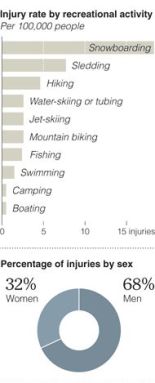This past Sunday, we had the wonderful opportunity to have Pieter and Nora Kalkman  visit us and share about their ministry in Europe. They spoke about their work in eastern Europe and their challenges in “post Christian” Europe. Nora and Pieter are based in Prague, Czech Republic where they serve through International Ministries as liaison and volunteer coordinators with the European Baptist Federation (EBF). They match the skills and interests of short term mission volunteers from the United States and Puerto Rico with the needs of more than 50 Baptist unions that are part of the EBF.
visit us and share about their ministry in Europe. They spoke about their work in eastern Europe and their challenges in “post Christian” Europe. Nora and Pieter are based in Prague, Czech Republic where they serve through International Ministries as liaison and volunteer coordinators with the European Baptist Federation (EBF). They match the skills and interests of short term mission volunteers from the United States and Puerto Rico with the needs of more than 50 Baptist unions that are part of the EBF.
Some interesting information they shared:
- There are only 2.4% Bible believing Christians in Europe, making this is a priority mission field.
- Georgian Baptist pastors wear similar liturgical vestments that Orthodox priests wear because of the historical Eastern Orthodox presence in that region.
- In some countries, only 3% of the population go to any type of “church.”
- There are a variety of needs to do mission work. Week trips, short term, and long term ministry opportunities can be found here.
So if there only 2.4% “Bible believing Christians” living in Europe, we have to ask the question: Is Christianity dead in Europe?

 For some reason recently, while typing my Friday posts, I have a song in my head. Two weeks ago,
For some reason recently, while typing my Friday posts, I have a song in my head. Two weeks ago, 




 Many people ask me what I’d being doing if I was not a pastor, often I say, “I don’t know, but I know I would not be happy if I was not a pastor.” I truly cannot imagine doing anything other than ministering to others, cultivating faith, teaching, and providing spiritual care. However, I could be a chaplain to an NFL team. What a dream job!
Many people ask me what I’d being doing if I was not a pastor, often I say, “I don’t know, but I know I would not be happy if I was not a pastor.” I truly cannot imagine doing anything other than ministering to others, cultivating faith, teaching, and providing spiritual care. However, I could be a chaplain to an NFL team. What a dream job! founding minister with Debbie Blue of House of Mercy, a pioneering emergent church in St. Paul, Minnesota. Rathbun is also the author of Midrash on the Juanitos (Cathedral Hill Press,2009) and the critically-acclaimed Post-Rapture Radio (Jossey-Bass, 2008). He lives with his wife, two kids, and dog KoKo in St. Paul.
founding minister with Debbie Blue of House of Mercy, a pioneering emergent church in St. Paul, Minnesota. Rathbun is also the author of Midrash on the Juanitos (Cathedral Hill Press,2009) and the critically-acclaimed Post-Rapture Radio (Jossey-Bass, 2008). He lives with his wife, two kids, and dog KoKo in St. Paul. As part of Judson Press’
As part of Judson Press’  With mega-churches basking in the spotlight of mainstream media, several studies have been done about the mega-church movement that might just surprise you. A
With mega-churches basking in the spotlight of mainstream media, several studies have been done about the mega-church movement that might just surprise you. A 

You must be logged in to post a comment.